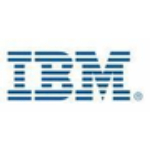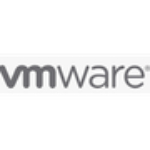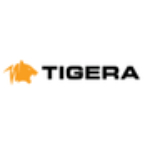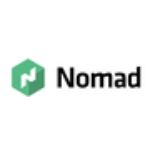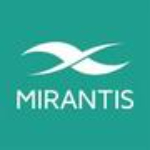TechnologyCounter provides genuine, unbiased real user reviews to help buyers make informed decisions. We may earn a referral fee when you purchase through our links, at no extra cost to you.
List of 15 Best Container Management Software
Showing 1 - 15 of 23 productsAmazon ECS is a latest software that streamlines the deployment and management of containerized applications on Amazon Web Services. With its ease of use and flexibility, Amazon ECS is revolutionizing the way businesses build, run, and scale their ap...Read Amazon ECS Reviews
Azure Container Instances is a cloud-based solution that simplifies the process of running and managing containers without the need for orchestration tools. With its easy deployment and on-demand scalability, Azure Container Instances offers a seamle...Read Azure Container Instances Reviews
Google Cloud Run is a platform designed to help businesses seamlessly deploy and run their applications in the cloud. It offers a serverless infrastructure that allows for efficient scalability and cost-effective usage. With its advanced features and...Read Google Cloud Run Reviews
Oracle Application Container: Introducing Oracle Application Container is a software that revolutionizes the way organizations manage their applications. With its advanced features and seamless integration, Oracle Application Container streamlines th...Read Oracle Application Container Reviews
IBM Cloud Kubernetes is a cloud computing platform that utilizes containerization technology to streamline is a ly manage applications. With its flexible and scalable infrastructure, businesses can easily deploy and update applications, giving them a...Read IBM Cloud Kubernetes Reviews
Cycle is a software that simplifies and streamlines your project management process. With its user-friendly interface is a features, Cycle makes team collaboration and task organization effortless. Say goodbye to complicated project management and he...Read Cycle Reviews
Rancher is a software that empowers businesses of all sizes to efficiently manage their containerized applications. With Rancher, teams can easily deploy, orchestrate, and manage their workloads on any infrastructure, providing the flexibility and co...Read Rancher Reviews
Portainer Business is a solution for managing and securing your Docker environments. Unlock the full potential of containerized applications and streamline your workflows with our intuitive and user-friendly interface. Say goodbye to complex and time...Read Portainer Business Reviews
VMware Tanzu Kubernetes Grid is a software solution that offers a seamless is a way to deploy and manage containerized applications. With its advanced features interface, it empowers businesses to confidently embrace the world of cloud-native develop...Read VMware Tanzu Kubernetes Grid Reviews
Scalingo is a cloud hosting platform that streamlines application deployment and management. Designed for businesses of all sizes, Scalingo offers a reliable and user-friendly solution for building and running your web applications. With automatic sc...Read Scalingo Reviews
CloudPlex is a software designed to simplify and streamline the cloud management process. With its intuitive interface features, CloudPlex helps businesses of all sizes optimize their cloud resources and processes, saving time and improving efficienc...Read CloudPlex Reviews
Calico Cloud is a and innovative software that revolutionizes the way businesses operate. With its advanced features and user-friendly interface, Calico Cloud streamlines operations and increases efficiency. Designed to meet the specific needs of mod...Read Calico Cloud Reviews
HashiCorp Nomad, is a solution for managing and deploying applications at scale. Designed to simplify the process of container orchestration, Nomad offers unmatched flexibility and reliability for both cloud-native and traditional applications. With...Read HashiCorp Nomad Reviews
Percona Kubernetes Operator is a automated tool designed to simplify and streamline database management in a Kubernetes environment. With its intuitive interface and seamless integration, Percona Kubernetes Operator revolutionizes the way databases a...Read Percona Kubernetes Operator Reviews
Mirantis Container Cloud a powerful and innovative software solution aimed at simplifying container orchestration and management. With its user-friendly interface features, Container Cloud offers businesses the flexibility and scalability needed to a...Read Mirantis Container Cloud Reviews
- What Is Container Management Software?
- Top Reasons Why Businesses Need Container Management Software?
- What Are the Top Key Features of Container Management Software?
- What Are the Top Benefits of Container Management Software?
- What Are the Steps to Choose the Right Container Management Software?
- What Are the Types of Container Management Software for Different Industries?
- What Are the Technology Trends for Best Container Management Software?
- What Are the Deployment Options for Container Management Software?
What Is Container Management Software?
Container management software refers to a category of software applications designed to effectively oversee and regulate the whole lifespan of containers. Containers are software packages that possess a low weight, enabling developers to consolidate all essential components of an application into a single package.
The utilization of containers facilitates the rapid and seamless deployment of applications across diverse settings. The container management platform is a valuable tool that facilitates the management of containers through the automation of many processes, including deployment, scaling, monitoring, and other related activities.
The software incorporates several technologies, including orchestration systems, that enable users to effectively oversee and regulate multiple containers within their infrastructure. Additionally, it offers a platform for executing containerized applications, including virtual machines or cloud-based services.
The best container management software is an indispensable asset due to its ability to streamline the process of container deployment and management, resulting in significant time and effort savings. Rather than requiring manual configuration for each container, this software provides automated solutions, enabling IT managers to allocate their attention to alternative responsibilities.
Furthermore, this technology facilitates enhanced scalability through the rapid and effortless addition or removal of containers as required. The utilization of container management programs enables enterprises to effectively oversee their infrastructure and enhance their overall operational efficacy.
Top Reasons Why Businesses Need Container Management Software?
1. Flexible Deployment: The best container management software facilitates the rapid and effective deployment of various application components within enterprises. This approach aids in the reduction of both deployment time and cost, while concurrently enhancing deployment accuracy.
2. Scalability: Containers include the inherent capability to be conveniently adjusted in size, either expanded or reduced, by the specific requirements. To facilitate this process, the container management platform plays a crucial role in effectively overseeing the scaling operations. This facilitates the incorporation of additional resources and the adaptation of hardware in response to fluctuations in demand.
3. Improved Security: Container management tools enable enterprises to enhance security by assuring the execution of just essential components of the application. In addition, they can engage in activity monitoring to identify potentially suspicious behavior and proactively respond to it, thus mitigating any potential impact on other applications.
4. Improved Portability: Container management software facilitates the seamless migration of programs across different environments, enabling enterprises to achieve this transition with minimal exertion. This facilitates the utilization of many hosting platforms or cloud services by organizations.
5. Enhanced Reliability: Containers are designed to operate in isolation from one another, thereby mitigating complexity and minimizing the likelihood of conflicts between programs. This infrastructure enhancement offers firms a heightened level of dependability and mitigates instances of operational interruptions.
6. Cost Savings: The container management program offers a cost-effective solution compared to conventional approaches, owing to its ability to efficiently allocate resources across different systems. This results in financial benefits for enterprises.
7. Improved Developer Productivity: Container management software is specifically engineered to optimize the development process and establish a uniform environment that facilitates the testing and deployment of applications.
8. Improved Resource Utilization: Containers operate within a virtualized layer, which optimizes the consumption of resources. The optimization of resource use results in cost efficiencies and enhanced operational effectiveness for enterprises.
9. Container Orchestration: Container management software offers several functionalities, including container orchestration, that facilitate the efficient administration of numerous containers inside a unified system.
10. Automation: The best container management platform offers automated capabilities that facilitate the management and configuration of intricate systems, eliminating the need for manual intervention. This practice decreases the workload of operations teams, allowing them to allocate their efforts towards jobs that contribute greater value.
11. Documentation: It offers comprehensive documentation that facilitates the comprehension of fundamental concepts and expedites the onboarding process for novice users.
12. Service Discovery: It offers service discovery functionality, hence enhancing the resilience and fault tolerance of programs. This enhances the accessibility of the applications, resulting in heightened levels of customer satisfaction.
13. Monitoring and Logging: Docker container management tools offer robust capabilities for monitoring and logging, hence facilitating the identification and resolution of performance and security concerns encountered by enterprises.
14. Multi-Cloud Deployments: Containers have the capability to be efficiently deployed across numerous cloud environments. This allows enterprises to effectively utilize the advantages of several cloud environments while also eliminating the necessity for duplicative resources.
15. Ease of Deployment: The best container management software streamlines the process of deploying applications. This phenomenon leads to a reduction in the duration required for application deployment and facilitates the expeditious delivery of novel features by development teams.
What Are the Top Key Features of Container Management Software?
The top key features of the best container management software include:
1. Automated Image Building: The utilization of automatable image generating and sharing facilitates users in efficiently and dependably creating, testing, and deploying programs.
2. Hybrid Cloud Support: It is designed to provide support for many types of cloud environments, enabling seamless migration between them while maintaining consistent resource scheduling and management. This capability ensures the stability and optimal performance of the system.
3. Security and Isolation: Containers provide a means of segregating application processes, thereby establishing a secure environment that safeguards against potential threats posed by remote attacks and malicious software.
4. Multitenancy: The concept of multi-tenancy enables users to effectively utilize shared resources while maintaining the integrity and security of individual environments.
5. Automated Orchestration: Automated orchestration facilitates the provisioning, de-provisioning, and configuration of resources across several containers, resulting in enhanced efficiency and decreased reliance on manual intervention.
6. Performance Monitoring: Top container management software facilitates the monitoring of application performance within containers, helping teams to promptly detect and resolve any performance-related concerns.
7. Resource Management: The optimization of resources is achieved across the entire lifecycle, accompanied by the use of standardized template configurations. This approach allows for precise management of resource utilization and cost.
8. Self-Healing: Container management software plays a crucial role in the autonomous restoration of applications, encompassing the seamless deployment of updates in the aftermath of failures.
9. Autoscaling: The practice of autoscaling enables the adaptive modification of CPU, memory, and disk resources in response to the specific demands of an application.
10. Flexible Provisioning: Container management tools enable the unified provisioning of infrastructure across several cloud environments, hence ensuring a uniform and standardized user experience.
What Are the Top Benefits of Container Management Software?
1. Increased Resource Efficiency: Top container management software facilitates the optimal utilization of computer resources by enabling the concurrent execution of numerous containers on a single host. Containers possess a much reduced physical space requirement in comparison to virtual computers, hence rendering them more operationally efficient.
2. Easy-to-Deploy Applications: The utilization of containers facilitates the deployment of applications by virtue of their capacity to swiftly encapsulate and distribute applications, inclusive of their comprehensive assortment of configurations and interdependencies.
3. Improved Scalability: The best container management software facilitates the efficient scaling of programs in response to the ever-changing demands of the environment, allowing for swift and seamless adjustments in both upward and downward directions.
4. Improvement in Automation: The container management platform enhances system automation by simplifying the deployment of extensive applications.
5. Increased Portability: Containers possess the advantageous characteristic of portability, enabling their utilization and transferability across diverse settings. Consequently, the seamless migration of programs between distinct cloud providers is facilitated.
6. Security: Containers are purposefully engineered to prioritize portability and security, facilitating the segregation of programs from one another and offering a level of isolation from the host system that lies beneath.
What Are the Steps to Choose the Right Container Management Software?
1. Evaluate Your Needs: Initiate the procedure by comprehending the intricacies of your project and the desired outcomes you aim to accomplish with the utilization of the best container management software.
2. Decide on Your Application Needs: The task at hand involves ascertaining the various categories of apps that are intended to be executed within the containers. This will assist you in choosing a software solution that is capable of effectively addressing your unique application needs.
3. Research Software Solutions: Undertake a comprehensive investigation of diverse top container management software solutions to ascertain the most suitable option for your specific requirements. It is imperative to evaluate the distinct attributes, functionalities, and cost structures of various solutions.
4. Review Documentation and Tutorials: Thoroughly review the product documentation and tutorials about the container management tools solutions under consideration. This will aid in the assessment of the most suitable solution that aligns with your requirements.
5. Test Out the Software: Conduct a comprehensive evaluation of the various container management program solutions under consideration to gain a more profound understanding of their respective feature sets and performance capabilities.
6. Select the Best Option: Upon careful evaluation of various container management software solutions, it is recommended to select the choice that most effectively aligns with your specific requirements.
7. Implement and Maintain: After selecting an appropriate best container management software solution, commence the implementation process inside your environment and ensure continuous maintenance.
What Are the Types of Container Management Software for Different Industries?
The best container management software is designed to offer effective deployment, manageability, scalability, and security for applications that are containerized. The variability of these software kinds is contingent upon the specific industry in question.
The subsequent enumeration presents a selection of prevalent top container management software utilized across various industries.
1. Enterprises: Container orchestration is a common practice employed by enterprise-level enterprises, wherein orchestration solutions like Kubernetes and Docker Swarm are frequently utilized. These tools facilitate enhanced scalability and manageability of applications. Additionally, they offer heightened security measures and ensure compliance within containerized settings.
2. Cloud Computing: Cloud computing environments offer a range of cloud-native solutions, such as Azure Container Services, Amazon ECS, and OpenShift, which are specifically designed to facilitate the deployment and administration of applications.
3. DevOps: DevOps businesses frequently employ agile deployment and management solutions, such as CircleCI or Jenkins, to expedite the deployment and scalability of applications. Furthermore, these solutions offer seamless connection with widely adopted container technologies, such as Docker, hence enhancing usability.
4. IoT: Specialized technologies, such as Kubernetes-based solutions, are available for IoT applications to facilitate the effective and safe deployment and maintenance of containerized applications. Furthermore, these solutions offer improved scalability and manageability to meet the demands of IoT deployment needs.
What Are the Technology Trends for Best Container Management Software?
The technology trends for best container management software include:
1. Automation: The utilization of automation technology in top container management software is seeing a growing trend due to its ability to enhance the efficiency of deploying, maintaining, and managing containerized applications and infrastructure. Automation plays a crucial role in enhancing the security and scalability of both applications and infrastructures.
2. Orchestration: Container orchestration technology offers enhanced visibility into the operational aspects of containers across several hosts or cloud providers. Administrators are able to efficiently oversee deployments via containers and effectively monitor resource use, applications, and services.
3. Scheduling: Container scheduling technology is a valuable tool that facilitates the allocation of jobs and the optimization of workloads in a more effective manner. Administrators can optimize resource utilization and enhance workload visibility by effectively coordinating the execution of tasks and services across all available resources.
4. Security: The growing prevalence of containerized environments has led to an increased focus on the importance of securing these environments. Container security solutions play a crucial role in safeguarding all assets that are housed within a given environment, encompassing both data and resources. These solutions achieve this by offering essential functionalities such as monitoring, logging, and access control.
5. Cloud-Native: The significance of cloud-native technologies in container management is steadily growing. Administrators are able to leverage the environment-agnostic services provided by cloud vendors in order to facilitate and optimize the management of containers and their associated data across various cloud providers. The aforementioned technology advances have the potential to enhance the effectiveness and efficiency of container management platforms.
What Are the Deployment Options for Container Management Software?
1. Self-hosted: The process of deploying and executing identical container management software on privately owned hardware.
2. Managed: Utilizing a container-management solution offered by a cloud provider, such as Amazon's Elastic Container Service (ECS), Google's Kubernetes Engine (GKE), or Microsoft's Azure Kubernetes Service (AKS).
3. Multi-Cloud: This alternative provides the capability to create container clusters across several cloud providers by utilizing platforms such as Rancher, OpenShift, and Kubernetes Federation.
4. On-premises: The process of deploying and executing container-management software on an existing operating system or server.




